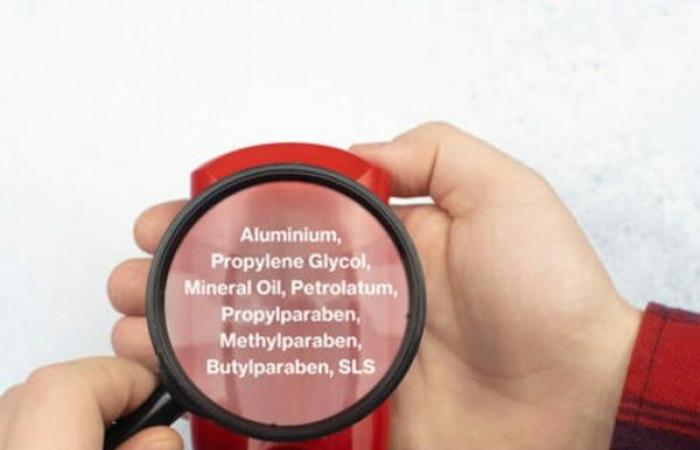Par
AFP
Published on
December 11, 2024
For a year, ANSES has been the watchdog for cosmetics: any adverse effect, allergic reaction, inflammation, etc. caused by a foundation, a deodorant or a tattoo can be reported to it with one click on the internet. A new, little-known mission for the health agency.
In mid-October, after an alert from ANSES, the Ministry of Health and Fraud Prevention advised hairdressers and consumers against Brazilian straightening hair products, very common on the market, containing glyoxylic acid.
At the origin of this alert: four cases of acute kidney failure – still under investigation – cured after hospitalization, in people who used hair products incorporating this “potentially toxic” ingredient.
“It is rare to have general effects,” explains Dr Juliette Bloch, director of health alerts and surveillance at Anses, to AFP. Most often, the adverse effects are limited to the area of application of the cosmetic product, “this can be depigmentation, alopecia…”
Since January 1, ANSES has seen its missions expanded to include vigilance and expertise on cosmetic and tattoo products – until then entrusted to the medicines agency (ANSM). The Fraud Prevention Department continues to monitor the compliance of these products with regulations and can impose withdrawals from the market.
ANSES’s warning on glyoxylic acid could lead to a modification of its European regulations, after a decision by an expert committee and then a vote by the 27 EU countries.
The construction site is vast. Of some 30,000 cosmetic ingredients authorized in the EU, only “a few thousand are prohibited and a few hundred regulated”, specifies Sandrine Charles, “cosmetic products” project manager at Anses. “So thousands have never been regulated by Europe.”
Rather too much reporting than not enough
Currently, monitoring of adverse effects is an obligation entrusted to the manufacturer, responsible for adopting corrective or preventive measures when he becomes aware of them.
But consumers, like hairdressers or beauticians, also help to better protect everyone’s health, by reporting adverse effects — allergies, poisoning, inflammation, abnormal reactions, etc. — on the signalement.social-sante.gouv portal. .fr.
And this, whether the use of the cosmetic product — cream, sunscreen, toothpaste, soap, deodorant, bath salts, perfume, varnish — was in accordance with the instructions for use or not: error in mixing, dosage, break time not respected….
“Reporting to the industry, to us, is fundamental,” underlines Dr Bloch, aware that few consumers have this reflex because “people say to themselves: It’s not interesting what’s happening to me; That’s it, it’s over...”.
“We know that what comes back to us is a very small part” of the cases, but “it is better to report too much than not enough,” she insists.
“Cosmetovigilance” is accompanied by “tatouvigilance” which monitors potential adverse effects caused by tattoo inks.
“Generally, it is not very serious: we are mainly informed of allergies, local infections. Some people report to us non-compliant aesthetic results” but this is outside the scope of action of ANSES, explains Dr. Bloch.
The most effective reporting, however, is that of tattoo artists, who report, after “having used such ink, several cases of infection among their clients”, which makes it possible to identify the product in order to withdraw it from the market if necessary, specifies- she said.
“There are a lot of non-compliant practices: some people get tattooed at home by people who are more or less respectful of hygiene,” slips Dr Bloch, mentioning a type of report sent to the Regional Health Agencies (ARS).
By Rébecca FRASQUET, Isabelle CORTES
Paris, December 10, 2024 (AFP)
All reproduction and representation rights reserved.
© 2024 Agence France-Presse
All information reproduced in this section (or on this page as the case may be) is protected by intellectual property rights held by AFP. Consequently, none of this information may be reproduced, modified, rebroadcast, translated, commercially exploited or reused in any way without the prior written consent of AFP. AFP cannot be held responsible for delays, errors, omissions which cannot be excluded, nor for the consequences of actions or transactions carried out on the basis of this information.






